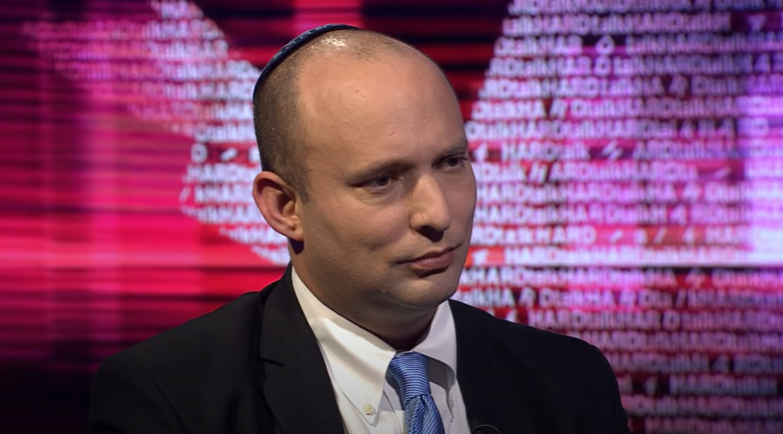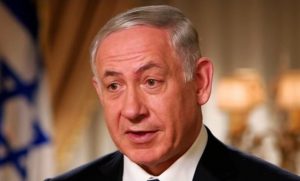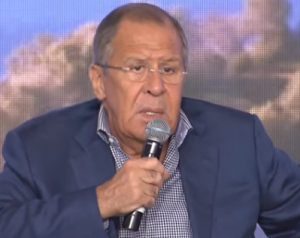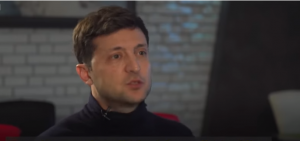
ABU DHABI, United Arab Emirates. The Times of Israel: Arab partners like the United Arab Emirates cannot play a meaningful role in improving conditions in the West Bank and Gaza if the Palestinians do not seek to work toward that goal, Foreign Minister Yair Lapid said Tuesday evening in Abu Dhabi.
“In the end, the Palestinians themselves have to want to move forward in order for someone else to come in and help them,” Lapid said in a wide-ranging press conference with Israeli journalists after meeting his Emirati counterpart. “That’s not the case right now.”
“We have a basic approach that they won’t fire 4,000 missiles on Israeli citizens if they want to receive help. This sounds simple, and it truly is simple,” added the new foreign minister.
At the same time, Lapid expressed his confidence that the UAE “will be a positive player in any possible process, if there is such a process.”
Lapid made his remarks during his two-day trip to the UAE, the first official visit by an Israeli minister to the Gulf state since the normalization of ties between Jerusalem and Abu Dhabi last year. He had just signed an economic and trade agreement with his Emirati counterpart, Sheikh Abdullah bin Zayed Al Nahyan.
In his remarks, Israel’s top diplomat stressed how impressed he was with the Emiratis’ understanding of Israel’s security challenges.
“It is extremely impressive how politically sharp they are,” Lapid said, pointing to statements Emirati officials made during Operation Guardian of the Walls. “You really have to understand the material to respond the way they responded.”
During the conflict, UAE condemned Israel over clashes between police and Palestinian protesters in Jerusalem, including on the Temple Mount, that prompted Hamas to fire rockets at the Israeli capital and set off the 11-day war. At the same time, the Gulf country was said to have warned Hamas that its planned investments in the Gaza Strip may not move forward if the terror group does not maintain calm in the territory.
Lapid said he was confident that the Biden administration wants to expand the Abraham Accords, which were orchestrated by the administration of former United States president Donald Trump, in conjunction with former prime minister Benjamin Netanyahu’s government.
He maintained, however, that under Trump, “there was a feeling sometimes that it comes instead of something. Let’s do this to prove that we don’t need… to advance on the Palestinian front.”
The new US administration is the opposite, he argued.
“It requires you to do something on the Palestinian front.”
Only one prime minister
Lapid, who is also alternate prime minister in the new government sworn in earlier this month, also addressed domestic politics in Israel, making clear that his focus is on his role as foreign minister.
“I don’t sit there and wait for the rotation, I work,” he said, referring to his agreement with Prime Minister Naftali Bennett that will see him assume the premiership in two years.
“There aren’t two prime ministers in Israel. There is one, he’s called Naftali Bennett.”
In June, Lapid came to a coalition agreement with Bennett to end Benjamin Netanyahu’s 12-year rule, under which the Yamina leader serves as prime minister first, until Lapid replaces him in August 2023.
Lapid also explained why he chose to go out of his way to thank Netanyahu during the ribbon-cutting ceremony at Israel’s new embassy in Abu Dhabi earlier in the day.
“I have disagreements with him, but that doesn’t mean I have to take something away from him,” said Lapid. “I thought it was right to thank him for the efforts he invested in this.”
He added that a more magnanimous style of politics will characterize the new government.
“We are putting in an effort to encourage, we are putting in an effort to be civilized. I am not willing to give in to the poisonous culture” in the Knesset, he said.
“We are trying to create a different political culture.”
Lapid’s trip comes nearly a year after the two countries announced they would normalize ties, and after months of planned visits by Israeli officials were stymied by a rash of issues, ranging from health crises to diplomatic scuffles.
Lapid will also attend the inauguration of Israel’s Dubai consulate on Wednesday.
Israel and the Emirates announced in August 2020 that they would normalize diplomatic relations, bringing over a decade of covert ties into the open. Bahrain, Sudan and Morocco later also joined the US-brokered Abraham Accords, and other countries were also rumored to be in talks, though none have come to fruition.
Netanyahu reportedly made the deal — which included Israel’s agreement not to hold up a US sale of F-35 fighter jets to the UAE — behind the backs of his foreign and defense ministers.
Netanyahu reportedly sought to celebrate the deal — the first agreement by an Arab state to have open ties with Israel in decades — with a festive UAE tour, but was repeatedly delayed by coronavirus travel restrictions, scheduling issues and internal political battles, as well as a spat with Amman in March that kept his plane grounded. According to reports, he sought to keep former foreign minister Gabi Ashkenazi from making an official visit to the UAE, in order to keep him from stealing the spotlight ahead of March’s elections.
Lapid’s trip comes despite the Health Ministry adding the country to a list of locations Israeli are strongly encouraged to avoid due to coronavirus outbreaks, warning that travel there could be banned. The UAE has seen numbers rise to over 2,000 new cases a day recently.
While in Dubai, Lapid will visit Israel’s pavilion at the Dubai Expo 2020 trade fair. The world fair, considered a milestone for Dubai — which has splashed out $8.2 billion on the eye-popping venue, in the hope of boosting its soft power and stimulating the economy — will now open its doors in October 2021.
The original opening, scheduled for October 2020, was delayed due to the coronavirus pandemic.
Designed to reflect Israel’s sense of belonging to the region, as well as the openness the Jewish state seeks to broadcast to its Arab neighbors, “the pavilion is therefore an open space -– a living room to host the expo visitors,” according to the architect behind Israel’s pavilion.
Israel’s presence at the expo had been planned before the normalization deal took shape, and the country has hosted Israeli ministers in the past, including then-transportation minister Israel Katz and then-sports minister Miri Regev.
On Sunday, Lapid met with Bahrain’s Foreign Minister Abdullatif al-Zayani in Rome after his discussion with US Secretary of State Antony Blinken, marking the first meeting between the new Israeli government and a cabinet minister from the Gulf countries.
“Peace with Bahrain should be an example of the right kind of process that needs to happen in our region,” Lapid tweeted after the meeting. “We also spoke about the challenges facing the Middle East, first and foremost Iran.”




